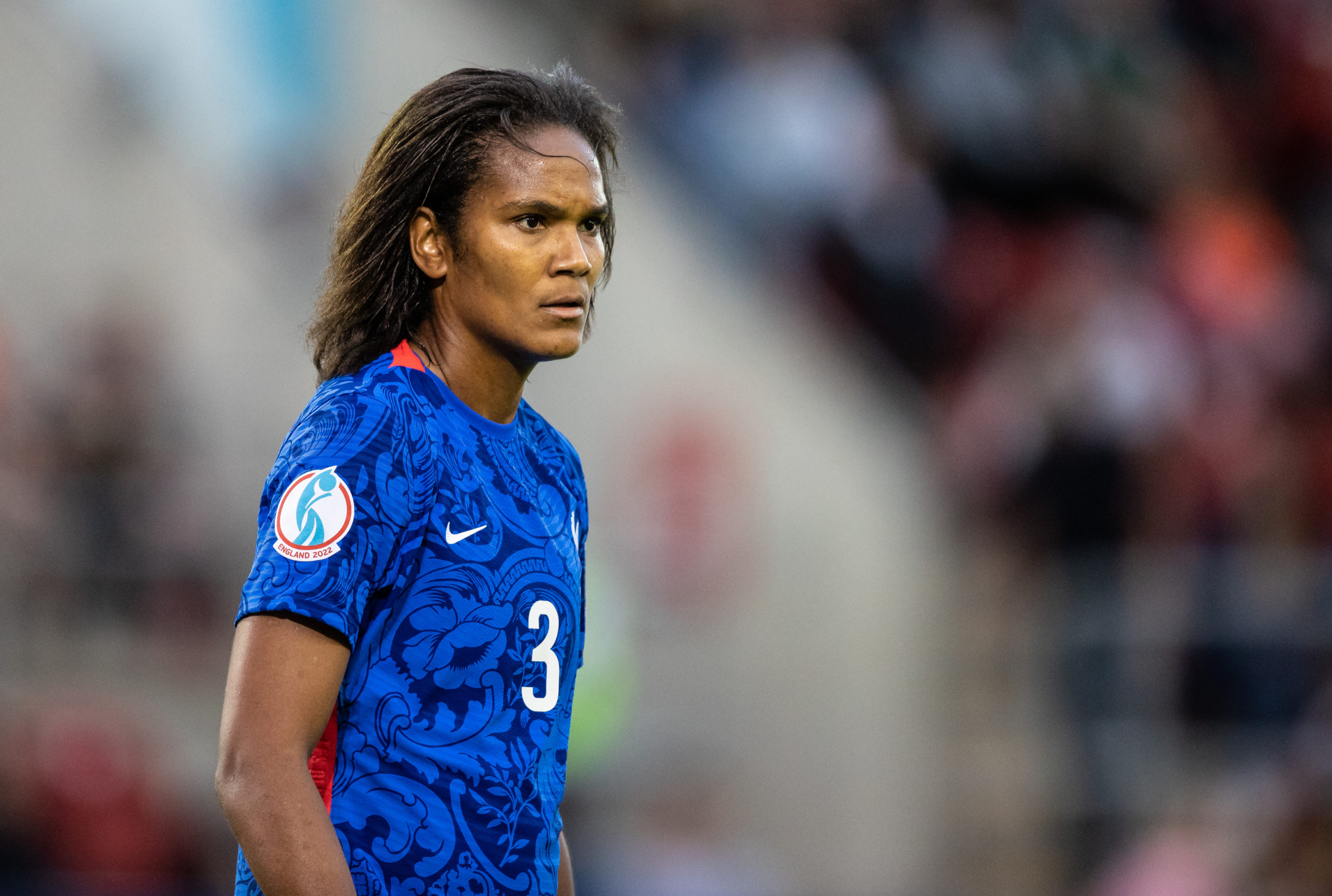All About Women’s Sports: Leading French Players Withdraw From National Team Before World Cup
By Claire Guest
Wendie Renard, the captain of the French Women’s National Team, stepped away from the team last week in the midst of final preparations for the World Cup.
In announcing her decision, Renard indicated she needed to preserve her mental health and “can no longer support the current system, which is far from the requirements of the highest level.”
The 32-year-old French player has been playing for the international team since 2011 and has 142 appearances. She also plays in France professionally with Olympique Lyon.
“I defend the blue, white and red jersey 142 times with passion, respect, commitment and professionalism,” Renard stated on social media, “I love France more than anything.”
Renard is recognized as one of the best defenders in the world, but has stated she will not play for this team as long as the head coach Corinne Diacre remains in charge of the French team.
Diacre stripped Renard’s captain role after their exit in the quarterfinals of the 2017 Euros, yet Renard was rewarded with this leadership role again in 2021 and has been captain ever since. This confusion created by Diacre was a component in Renard’s exit from the team due to her poor mental health.
“Unfortunately, I will not be playing in this World Cup under such conditions. My face may hide the pain, but my heart is suffering… and I don’t want to suffer anymore,” Renard said.
Shortly after Renard shared her statement on social media, Marie-Antoinette Katoto and Kadidiatou Diani also left the team and called for “necessary change” in the French team’s management. These two Paris Saint-Germain players have a combined cap total of 114, both contributing critical goals for the French team in international play.
In the Tournoi de France earlier this month, France defeated Denmark and Uruguay and tied Norway, earning the tournament championship. Renard started all three games, Diani two of them, while Katoto was out recovering from an ACL tear.
The absence of these three incredible players and leaders going forward will undoubtedly change the profile and strength of the French team.
Even before Renard’s bold decision, many current and former French players had raised concerns about Diacre, including recently retired goalie, Sarah Bouhaddi, and former captain, Amandie Henry. Like Renard, those players questioned the French team’s direction and suggested poor player treatment and management.
“I saw players crying,” Henry said, commenting after the 2019 World Cup, “I personally cried in my own room sometimes. I wanted to enjoy the World Cup, but in the end, it was total chaos.”
Diacre has routinely criticized her players and created a toxic playing environment, ultimately leading to the best French players leaving the team. Her frequent critical treatment of players and questioning their effort and commitment, but then she would make poor playing time decisions based on personal biases, led to a problematic environment. It corrupted the team’s morale and alienated players.
Despite these criticisms and player defections, the French Football Association has continued to support Coach Diacre and has even extended her contract through 2024.
The World Cup will be held in New Zealand and Australia this summer starting on July 20.
France’s team is ranked fifth overall in FIFA, slightly ahead of Canada and Spain, who are rated sixth and seventh respectively. Canadian and Spanish players are also protesting their teams’ management over similar poor working conditions, such as their lack of funding, creating a poor working atmosphere, and unequal pay and treatment.
Female athletes around the world deserve coaches who push them to excel but do so encouragingly and productively. That is not only the right way to treat people and players, but also the most effective way to get the most out of people, in sports or any field.
